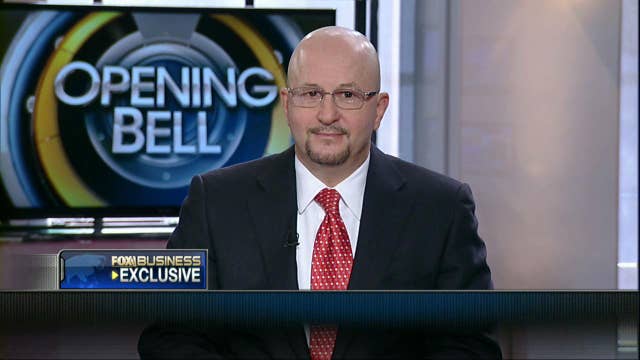Former Qwest CEO Joe Nacchio Tells Story of Fight Against NSA, SEC
In his first interview since being released from prison, former Qwest Communications CEO Joe Nacchio appeared on FBN’s Opening Bell with Maria Bartiromo to tell his story of a fight against the National Security Agency and allegations of insider trading.
Nacchio said he never engaged in insider trading, and he believes the government’s accusations were tied to his turning down a request from the NSA.
According to Nacchio, his troubles can be traced back to a meeting at the NSA’s Fort Meade, Md., headquarters on Feb. 27, 2001. The agency asked that Qwest participate in a surveillance program, but Nacchio considered the proposed action to be illegal.
Nacchio was unable to explain the exact nature of the request, which remains classified. However, contrary to news reports, he said discussions with the NSA at the February 2001 meeting didn’t involve turning over telephone records.
“I found that request to be peculiar. I didn’t think it was legal. I asked for legal justification. We never got it, and therefore we never did it,” said Nacchio, who completed his prison sentence in September. “That was the moment things turned down for me.”
The former AT&T (NYSE:T) executive resigned from his post at Qwest in 2002 after the Securities and Exchange Commission launched an insider-trading investigation. In 2007, he was charged with 42 counts of insider trading.
Nacchio was ultimately convicted on 19 counts for selling stock between April and May 2001, leading to the forfeiture of $44.6 million and a $19 million fine. He was sentenced to six years in jail, but his time was reduced to 70 months.
The alleged insider trading took place before he was aware that Qwest had lost a government contract it was expected to receive, Nacchio noted.
While Nacchio was in prison, confidential NSA documents were leaked by former Booz Allen Hamilton (NYSE:BAH) employee Edward Snowden, publicly disclosing the agency’s surveillance programs. The leaks sparked criticism of various government programs that collect Internet data and phone records.
“There was no news to me,” Nacchio said of the revelations.
Qwest, which was acquired by CenturyLink (NYSE:CTL) in 2011, starting working with the government on national security matters in 1997.
Nacchio stressed that the surveillance programs revealed by Snowden’s actions were legitimate and legal operations approved by Congress, while Qwest refused to do something that he determined was illegal.
“Unlike Snowden, I held my obligation never to disclose,” Nacchio commented. “I did not choose to break a law to prove that I didn’t break a different law.”
On the subject of U.S. intelligence programs, he wants the country to find a balance between obtaining critical information and maintaining civil liberties.
“We have to be the best as a country on using new digital technologies in order to protect our welfare. That’s an important goal,” said Nacchio, who is working on a book and has received offers to return to the telecom industry as a consultant.
But the country can’t “change our values…for the sake of security,” he added. “I believe the technology and the people we have are smart enough that you could have both.”




















